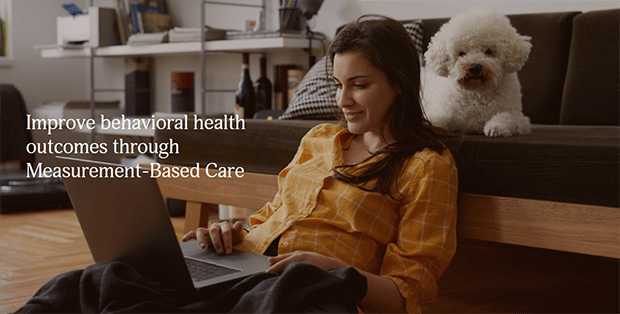Below is our recent interview with Mark Potter, CEO at Mirah:

Q: Could you provide our readers with a brief introduction to your company?
A: For years now, nearly all areas of healthcare have had defined processes in place for measuring progress in patients. Blood pressure readings, HbA1c testing, weight, bloodwork. The collection and tracking of data has become the cornerstone of healthcare, except in behavioral health. Patients come and go. Sometimes they get better, sometimes they don’t. We often don’t know why.
Measurement-based care (MBC) changes that. With MBC, patients complete clinically relevant assessments between visits and providers use that feedback in treatment. For the first time in behavioral health, patients have a voice in their care, providers can prove (and improve) the quality of care they provide, and outcomes are quantifiable. MBC is an evidence-based practice and the path to value-based care.
Founded in 2015, Mirah has pioneered the measurement-based care (MBC) movement for behavioral health. With our intuitive online platform, patients can take their assessments from any device, anywhere. Providers can track responses over time to ensure progress. At the organizational level, leadership can review aggregate data to improve behavioral health services.
As the only turnkey solution for measurement-based care, we are partnering with providers and payers to better serve thousands of patients across the globe.
Q: Any highlights on your recent announcement?
A: With a targeted footprint of 250-300 centers over the next three to five years, Geode Health is set to scale. Committed to evidence-based, medically proven treatments for all patients, any practices they put in place to provide that will need to be ready to grow alongside them.
That’s where Mirah comes in as the only MBC solution built for enterprise scale. We’ve refined our best-in-class implementation process through two decades of experience, meaning we are uniquely equipped to support the needs of major organizational growth. Further, an MBC solution is only effective if clinicians and patients actually use it. So, we pair our flexible measurement software with a team of expert clinicians – committed to providing the training and support needed to drive organizational change.
Our approach is patient-centric and clinically driven to help our customers build sustainable, effective, and data-informed practices of all sizes.
 Recommended: BEST Robotics Mission Is To Make STEM Education Accessible And Engage Students About Science, And Technology
Recommended: BEST Robotics Mission Is To Make STEM Education Accessible And Engage Students About Science, And Technology
Q: Can you give us more insights into your offering?
A: Mirah is a flexible, online platform for measuring behavioral health. With 400+ clinically validated measures, Mirah’s measure library covers a wide variety of diagnoses and conditions to inform critical care pathways.
Providers can tailor measure selection to the patient, choosing what matters most to them. Organizations can lower total cost of care by getting patients the right care at the right time. Teams can conduct patient-centered collaboration with centralized outcome and measurement.
Q: What can we expect from your company in next 6 months? What are your plans?
A: Our nation is in the midst of a mental health crisis, which has everyone talking about access issues. It’s not only an issue of ‘access’ but access to quality care.
MBC does more than simply improve treatment efficacy, it also lowers the cost of care and shortens the duration of care. This is precisely the reason we are working with payers, providers, and accreditation agencies to get providers paid more for better outcomes. Value-based care is coming and Mirah is the path toward it.
 Recommended: Cognata Provides A Realistic Automotive Simulation Platform
Recommended: Cognata Provides A Realistic Automotive Simulation Platform
Q: What is the best thing about your company that people might not know about?
A: Mirah is built on a clinical model that’s 20+ years old. Our tech stack, however, is <5. This is the best combination of modern technology built with clinically validated measurement approaches.
Further, our robust platform allows providers to optimize care using the most sophisticated measures on the market. Mirah’s extensive library of 400+ clinically validated measures include several built specifically for MBC.
Common measures like the PHQ-9 and the GAD-7 are great at diagnosing an issue, but do not provide any explanation for the cause of that very issue. Measures purpose-built for MBC are designed to be used over and over; they’re computer-adaptive based on patient response and rotate to reduce patient measure fatigue.

